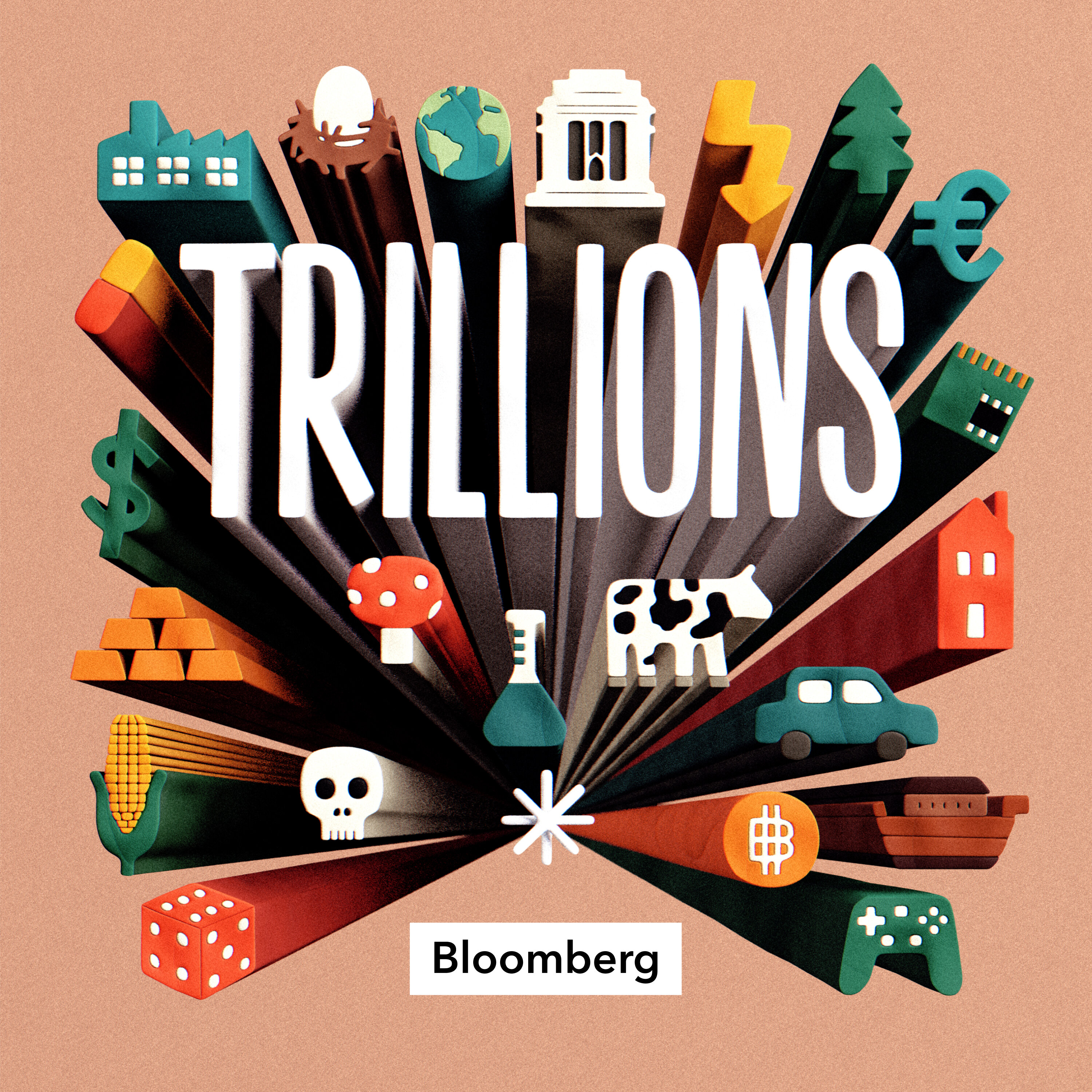
The Canadian Money Roadmap
Invest smarter, master your money, live & give more
The Canadian Money Roadmap
The Secret Ingredients of Stock Market Success
**I usually keep my episode descriptions pretty minimal but this AI generated description was too flavourful to keep to myself. Enjoy.**
Ever find yourself marveling at grandma's mouthwatering dishes, only to discover her "secret ingredient" was something quite unexpected? That's the essence of my snowy Saskatchewan weekend revelation: the culinary magic of MSG is akin to the world of factor investing—both can enhance the outcome in surprisingly simple ways. Hitch a ride with me, Evan Neufeld, as we stew over how a pinch of systematic factor investing can potentially spice up your portfolio. We're stirring the pot, debating whether stock market success is more about the chef's talent or the seasoning they choose, and examining the savory blend of factors like value, small cap, momentum, and quality.
Grab your apron and prepare to sift through the complexities of the financial market, as we uncover the robust flavor of high-quality businesses and the subtle zest of low volatility. We'll also reveal why some factors have become timeless recipes for success across different global markets. Whether you're a culinary novice in the kitchen of investing or a master chef ready to season your assets to perfection, this episode promises a full course meal of enlightenment. So, let's turn up the heat and cook up some mouth-watering strategies that could make grandma's secret ingredient seem like child's play.
Invest With Evan
Financial Foundations Course - Save 25% with code PODCAST25
Full Financial Picture Spreadsheet
Hello and welcome back to the Canadian Money Roadmap podcast. I'm your host, evan Newfield. On today's episode, I'm going to use a little story about grandma's secret weapon in the kitchen and how you can use that as an analogy to build your own systematic factor investing portfolio. Over the weekend I whipped up a little bit of chili. We had a crazy snowstorm over here in Saskatchewan. When it's cold and snowy outside, a nice pot of chili is one of those things that just hits the spot. So once in a while I post things on Instagram about the things I'm cooking. I find some people get a kick out of that and it's kind of fun to do. I showed some of the spices that I put into my chili and part of the seasoning that I used. I actually include MSG For many of you. You probably had the same reaction as a family member of mine who reached out and said MSG. I thought that was poison. Side note here there's a lot of studies about MSG, including some reporting from Health Canada that says that all the studies that have ever been done on MSG say that there's no health hazards there and it just makes your food taste really good. So no, msg is not poison. Anyways, we had a little bit of a back and forth there. It was kind of fun and that, from my perspective, msg is a bit of a miracle on making food taste better. And so she said, oh, I don't have any MSG on hand. And I said, okay, well, you can actually track it down at the grocery store under the brand accent You've probably seen it too If you're in the spices aisle by the salt. It's this little cylindrical container that just has like an animated drawing of some like vegetables and chicken, drumsticks and whatever. It's a little red and white package. It's called accent. It doesn't say MSG explicitly on the package, it just says it's a flavor booster, makes food taste better, or something like that. Anyways, I sent her the picture of accent the stuff that I buy and she said, oh, grandma used to use that. I really thought that was hilarious, because you know my grandma, your grandma, whatever. Everybody has this memory of grandma's cooking being delicious and you know, grandma had this magic touch in the kitchen or a secret sauce or whatever, and it's like well, turns out what she did. It was called MSG and the MSG makes your food taste better, makes grandma's food taste better, makes my food taste better, whatever. So maybe there was a little bit less of grandma's skill in the kitchen and a little bit more of the a little bit of culinary magic that was at play there. So I thought, hmm, this is kind of like factor investing a little bit here. So I'm going to explain a little bit what I mean by that. Don't take my analogy too far here because it'll start to break down, but anyways, let's let's get into factor investing here a little bit. So if you're someone that's ever picked your own stocks or invested in a fund or ETF that was actively managed meaning someone behind the scenes like a portfolio manager was picking stocks and fun, performed well, or you performed well and you seem to have a bunch of winners ask yourself the question Was it skill that led to that performance or was it simply just factor exposure? Okay, so what are factors? Well, factors are just characteristics of stocks or groups of stocks. Some really common ones are like value. Value meaning lower priced relative to say, earnings, or something like that Small cap, which just means smaller companies compared to huge companies. Momentum these are things that are working and, for whatever reason, they tend to keep working for a little while. So there's a momentum factor. Quality. Quality is often what people confuse. Dividend paying companies for it's like no, it's not the dividend that actually makes these companies perform well. It is actually the fact that they represent a high quality business with good cash flows, low debt, all those kind of things. Low volatility is another one that's kind of similar to quality as well. Anyways, there's many, many, many factors, and many of them have been shown to out perform on an absolute basis or a risk adjusted basis over the long term. So the best evidence for factors are the ones that there's been persistence over time and across geographies. So, for example, if something say you come up with this factor on your own and it works in with Canadian stocks, but it never worked in the EU, well, it's probably more of an anomaly than something that actually explains stock market performance. So factors that are most commonly available and investable are things that have persistence over time and geographies in particular. Most of the ones that are investable in products that you and I can buy are also ones that not only work but are easily systemizable, to the point where a fund or fund manager doesn't have to charge so much that the benefit of that factor is then gone Right. In theory, there could be factors that exist, but it's just too expensive to isolate them and so it's tough to actually invest in them. So the ones that I mentioned there are largely investable factors that can be added to your portfolio in one way or another. So there have been a number of studies that look at portfolio manager skill, and in many cases it can typically be quite simply boiled down to whether that portfolio manager had exposure to investment factors during those times when those factors did well. So over the last decade or so, the portfolio managers that seem to do well, they owned large cap growth and momentum type stocks, because the factors that drove the performance of the entire market were large cap growth and momentum. The previous decade, the opposite was true. It was value managers and high quality and things like that, and so factors do a really good job of explaining returns and where they came from. But the cool thing with a lot of factors is that, on a go forward basis, you can include them in your portfolio as ways to get exposure to them, to potentially increase your returns, improve your risk metrics and things like that. So the challenge here perhaps this is a no brainer, but the challenge is always knowing what factors will perform tomorrow? Because some people describe factors as risk factors specifically, and so if you're increasing your expected returns by factor investing, that means that you should also be increasing your risk in a way, in a way, and so In this case, many times risk shows up as an underperformance, perhaps for an extended period of time. So if there's no underperformance, there's no opportunity for outperformance. You know, there's a few ideas that we could kind of flesh out there, but that's kind of the idea that there's no one factor that will always outperform, and so this is why persistent outperformance by stock pickers is also really challenging, right? So if they have a style that's actually representative of a factor bias, when that factor is no longer in favor, they will also likely fall out of favor as well. So I haven't been in the business for an eternity by any means, but my eight years, eight and a bit. I've already seen it many times for many different fund companies, where a portfolio manager has a specific style and that style suddenly falls out of favor and they get fired, only to have that style rush back in favor almost immediately after. It's actually crazy to kind of see how that actually works. And so is this person, someone who didn't have skill or suddenly lost their skill or something like that. It's like no, it's probably just explained by factor bias, and so there may be some misunderstandings as to what you're actually investing in when you have an actively managed portfolio, including yourself being someone who might pick their own stocks. So, in the factor investing space largely agrees that there are factors that explain performance of the stock market, but also that the timing of these factors is impossible. So most portfolios that utilize a factor approach effectively will own multiple factors at all times. In many cases, these factors can work together as opposed to against each other. So there's a variety of ways of building this, but most factor portfolios that are reasonably effective over a long enough period of time are multi-factor funds. So the reason for this is that it's a systematic way of building a portfolio using the building blocks of higher expected returns. So systematic just means that it can be repeated and largely automated, which makes it cheaper than traditional stock picking active management would be. So to compare it to portfolio manager, that's picking stocks. Yes, they might be good sometimes, not good other times, whatever, just like a factor portfolio might be. But because stock picking and traditional active management is so expensive, you as the end investor have a much harder time doing well with that fund as a result. So using a factor portfolio, you could potentially have a very similar outcome, but by lowering the cost of the exposure to those factors you can actually benefit more over time. So back to my original story. Factor investing is kind of like this seasoning on your portfolio, or I would maybe recommend you think of it that way, because committing to just one factor can lead to underperformance for a long time. Let's use my chili here. Say, I didn't use any salt, I didn't use chili powder, I only used garlic in my chili. It's like oh, I got tomatoes and beans and ground beef and lots of garlic. Hmm, garlic is nice, it's nice, but having a few other things in here would probably make it taste a little bit better. So adding a multi-factor approach in your portfolio can make for a well balanced, repeatable strategy that tastes good more often than not. So there are a few companies that I'm familiar with and I understand their approach to factor investing. Those two companies would be Fidelity and Dimensional. If a factor based portfolio is something that's new and interesting to you, feel free to reach out to me through my website or shoot me an email at podcast at evannewfiltcom, and I can get you connected with an advisor on our team to explain how that might work for you and your portfolio. So anyways, this was just a quick episode. It went from very light to maybe a little bit advanced there. So let me know what you think about factor investing and whether or not your grandma had a little bit of special sauce in the kitchen here. Thanks so much for listening. We'll see you next week. Thanks for listening to this episode of the Canadian Money Roadmap Podcast. Many rates of return or investments discussed are historical or hypothetical and are intended to be used for educational purposes only. You should always consult with your financial, legal and tax advisors before making changes to your financial plan. Evan Newfield is a certified financial planner and registered investment fund advisor. Funds and ETFs are provided by Sterling Mutuals Inc.








